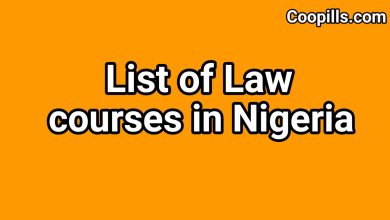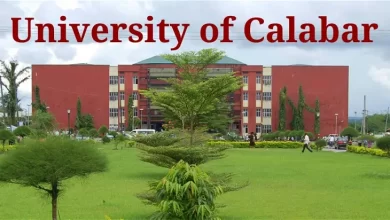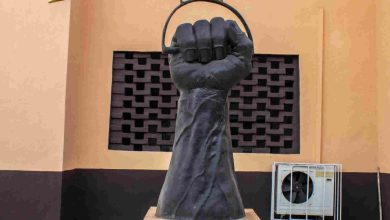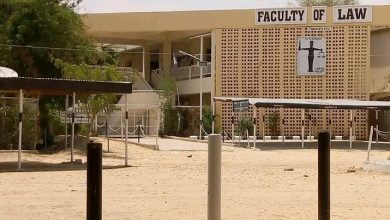Offence of witchcraft laws
In this article we shall be looking at the witchcraft laws globally.
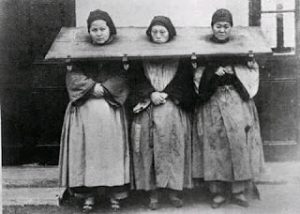
By: Dapuri M. Cephas
The belief in witchcraft has long-lived. Even thousands of years before modern Courts were ever established, the Laws of Moses recorded in the Ancient Book of the Christians (The Bible) had already determined the liabilities of any person who practiced witchcraft. The 18th verse of the 22nd Chapter of Exodus provides that, “Thou shall not suffer for a witch to live”. Literally, Any person who practiced witchcraft was liable to a mandatory death sentence under the Biblical Mosaic Law.
In 1497, Albrecht Durer, a German Renaissance Artist, made a famous artistic work engraving four seductive witches which he titled “The Four Witches”. Many people gave interpretation to the artwork of Albert Durer, but the general view was that in the medieval ages there was widespread fear of witches associated with intimidating evil works such as sucking of blood, flying, and other horrific activities.
In the trial of the Suffolk Witches (1665), a British Judge, Lord Hale stated that “there are such creatures as witches I do not doubt at all. First, the scriptures affirmed so much. Secondly, the wisdom of all nations had provided laws against such persons, which is an argument of their
confidence in such a crime.”
The learned judge expressed his views on the existence of witchcraft which stands to affirm Scriptures. To this extent, it is not uncommon and strange to find legislators and judicial bodies make laws hoverning the belief in witchcraft and its associated practices. If it existed not, the laws on it would be of no use. The question that arises most is whether or not the
practice of witchcraft is therefore an offense against state laws.
Table of Contents
Offence of Witchcraft
As Lord Hale stated in Suffolk Witches (Supra), “the wisdom of all nations had provided laws against such persons”, in other words, the practice is unacceptable and society frowns at it. Witches are believed to be people (both male and female in this context) who possess
inherent supernatural powers which they use knowingly or inknowingly to harm others or to benefit themselves (Nukunya, 2004).
Henry VIII of England (who reigned from 1509-1547) was the first to define witchcraft as a felony punishable by
death in The Witchcraft Act of 1952 (Henry VIII c.8); this likened to the punishment meted out by the Mosaic Law in Exodus 22:18. The Act was later repealed by several Acts until the passage of the Witchcraft Act 1735. Under Act 1735, witchcraft remained an offense punishable by fines or imprisonment or both. Not to dwell much on that, the witchcraft Act of 1735 was repealed by the Fraudulent
Medium Acts of 1951.
The Fraudulent Medium Act of 1951 did not involve the use of the word witchcraft but has provisions that prohibit certain activities akin to the activities of witchcraft; it provides that, any person who: with intent to deceive purports to act as a spiritualistic medium or to exercise any powers of telepathy, clairvoyance or other similar powers; or In purporting to act as a spiritualistic medium or to exercise such powers as aforesaid, uses any fraudulen device; shall be guilty of an offense.
Witchcraft in Africa
In Africa, it is believed that the belief in the supernatural and witchcraft is predominant. The reasons seem so weird, but to Greta Bloomhill “belief in, and practice of, witchcraft flourishes more in Africa because of hypnotism, a relatively undeveloped skill in the West, has been a skilled art in Africa for many years.” However, in Africa as well, the laws concerning witchcraft have not made the
practice legal but an offense.
Witchcraft Laws in Zambia
In Zambia, witchcraft includes the throwing of bones, the use of charms, and any other means, process, or device adopted in the practice of witchcraft or sorcery (Witchcraft Act 1914, Zambia). These practices constitute an offense against Witchcraft Act 1914, Zambia.
Witchcraft laws in Nigeria
In Nigeria, the law prohibiting witchcraft is section 216 of the Penal Code which provides that: Any person who: by his statements or actions represents himself to be a witch or to have the power of witchcraft or accuses or threatens to accuse any person with being a witch or to with having the power of witchcraft or makes or sells or uses assists or takes part in making or selling or using or has in his possession or represents himself to have any juju, drug or charm which is intended to be used or reported to possess the power to prevent or delay any person from doing any act which such person has legal right to do or compel any person to do any act which such person has a legal right to refrain from doing or which is alleged or reported to possess the power of causing any natural phenomena or any disease or epidemic is guilty of a misdemeanor and is liable to imprisonment for two years.
Witchcraft laws in Tanzania
In the Republic of Tanzania, a country situated in the eastern seaboard of the African continent, The Witchcraft Act, 1998, prohibits witchcraft and certain practices related to the practice of witchcraft.
Witchcraft laws in South Africa
In South Africa, the Witchcraft Suppression Act, 1957 prohibits various activities related to witchcraft and witch-hunting.
S.1(f) of the Act criminalizes activities for gain pretending to exercise or use any supernatural power, witchcraft,
sorcery, enhancement or conjuration, or undertaking to tell fortunes, or pretending from skill in or knowledge of any occult science to discover where and in what manner anything supposed to have been stolen or lost may be found.
Activities relating to witchcraft are not formalized and legalized in the Western world and Africa alike. It is a strong recommendation the countries that do not have specific legislation prohibiting the act of witchcraft should pass laws to regulate it. These Acts must as well regulate witch-hunting which has, for some time now, become almost an activity leading to the death and assault of people who may not even be practitioners of witchcraft.
The next section of this article seeks to deal with how some jurisdictions have their laws and courts deal with the issue of assault against people who, in the opinion of people, are witches and are dangerous to the society.
Witch Hunting and the Law
According to the Cambridge Dictionary, witch-hunting is “an attempt to find and punish people whose opinions are
unpopular and who are said to be a danger to society”.
Historically, Matthew Hopkins, English Witch hunter, sometimes titled as Witch Hunter General lived from c.1620 to 12 August 1647 was one of the first persons to have chalked success in the activity of witch hunting. He is believed to have been responsible for the executions of over 100 alleged witches between 1644 and 1646.
His method of investigations and discovery of witches are found in his published book titled “The Discovery of
Witches”. Considerably, he used various ways including cutting the arm of the accused. If he or she did not bleed after the cut, it confirmed that the accused person possessed of supernatural powers. After some time, Hopkins’ activities were criticized but he also soon retired.
Activities of witch-hunting did not end with Hopkins but continued in most parts of the world. In most jurisdictions, the act of accusing someone of witchcraft is an offense.
Section 216 of the Penal Code of Nigeria criminalizes that act of accusing people of witchcraft.
Suppression Act 3 of 1957 of South Africa equally prohibits the act of pointing accusing fingers at people as witches.
The laws seem not to adequately solve the problem of discrimination against old people. In other countries such as Ghana, camps have been established to accommodate people who mostly are old and believed to be witches.
These Camps are associated with inadequate provision portable of water and other basic social amenities. It is a plea to stakeholders in countries with these camps to disband the camps and assimilate their citizens back to the community.
Not only have the camping of witches humiliated many people who may or may not even possess any supernatural powers but the assaulting of these vulnerable
poor people who are supposed to be subjected to kindness and love; rather are subjected to regrettable deaths or grievous bodily harms. Assaulting a person to death is homicide and where there is no considerable defense for the killing, it amounts to murder. The title of
witchcraft does not reduce a human to an animal and it is not appropriate to raise matters of witchcraft for complete acquittal in a murder case. In the case of Donald Taulo & Another v. The People (2018) , a recent case that happened in the Republic of Zambia, two accused persons
were convicted of murdering an elderly woman but pleaded that their belief in the witchcraft of the elderly woman was an extenuating circumstance for their action.
The Supreme Court sentenced both accused to a mandatory death sentence when they failed to prove beyond a reasonable doubt that their belief was based on reasonable grounds to amount to an extenuating circumstance.
Much ideally, the populace must desist from harming people who are alleged witches. The law has no complete protection if your defense is mainly witchcraft even though it may, in few cases, amount to extenuating circumstances such as provocation – a partial defense to murder. However, the activities of people who are alleged witches sometimes can be very weird and horrific, this often time may lead people to overreact leading to their sudden death or grievous bodily harm. People may harm allege witches claiming that they were protecting themselves from being bewitched, thus, as we may simply put it, a “self-defense” against their activities. Others may also harm them if their activities towards them are extremely provoked. The next section of this article seeks to highlight cases involving the above reasons for the harming of alleged witches and how the law has sought to handle such situations.
The right of “self-defense “and witch killing/assaulting
This section of this article is written in the context of the ghanaian criminal law; consequentially, certain provisionsbas may be seen in some in the Ghanaian Criminal Law may not apply in all other jurisdictions but may only have persuasive effects. Defense against crime as a defense
against charges can only be raised if in causing the assault, he acted for the prevention of, or for the defense of himself or any other person against any crime, or the suppression or dispersion of riotous or unlawful assembly (Section 37 of The Criminal Code, 1960).
An accused person is most likely to plead under Section 37 of the Criminal Code, 1960 if the matter involved is mainly metaphysical. If the defense against crime has to do with the protection of oneself from activities of alleged witchcraft, the Courts’ are less likely to grant the plea. In the Ghanaian case of Maawole Konkonba v. Queen (1952) which rose to the West African Court of Appeal, the accused genuinely had belief in the existence of witchcraft and that his brother was killed by witchcraft and the alleged witch was seeking to kill another via the same means. The accused confronted the alleged witch (the deceased) and demanded medicine for the relief of his brother. When the alleged witch said he had none, the accused assault him with a blow on his head which subsequently caused the death of the assaulted alleged witch. To the desperate accused, he acted to protect his brother from being killed the same way he believed his deceased brother was killed, literally, defense against the death of his brothers.
However, the West African Court of Appeal dismissed his appeal against his murder sentence. The Court stated that
“We have no doubts however that the appellant honestly believed when he struck the fatal blows that he was striking a man who had already killed one of his brothers through witchcraft and was in the process of killing another, but that is no defense in law although is a matter which the Executive will no doubt consider when the case comes before it for consideration.” The courts are not to be condemned for the inconsideration of such
circumstances; for public policy and to prevent assaulters from seeking unreasonable refuge under the cover of witchcraft, the courts, therefore do have a valid and understandable grounds for the rejection of the plea of defense against crime when sought by assaulters of alleged witches. “ It is difficult to see how an act of witchcraft unaccompanied by a physical attack could be brought within the principles of English Common law” . If the
floodgates are opened, the old will not be spared in the community.
Emphatically, the courts are not so willing to assimilate the customary belief in witchcraft of the African society in respect of defense against crime. People living in
developed cities may not fear the threat of words and activities of fetishism but people living in rural areas, who believe in the supernatural, may shiver at the threatening fetish activities and words of so-called witches.
Therefore, to such people “consistent with a belief prevalent in his locality such a threat is no less menacing than the threat of a gun attack”. In an article titled
“witchcraft and the Criminal Law in East Africa”, Montungi wrote the event where three teachers of a school in Kenya
fled in fear of witchcraft after they believed they had been attacked in different forms. These teachers believe in the existence and effect of witchcraft threat; the situation does not remain the same for all people. In R v. Odo, a Nigerian case that rose to the West African Court of
Appeal in 1938, the accused placed a charm on the Judge’s table with the view of influencing the decisions of the judge.
However, to Kingdom C.J “a person may lawfully hold a belief whether based on superstition or not that by some intrinsically innocuous and inoffensive act he can influence a court in his favor”. The judge did not believe in the powers of fetishism. The above illustrates how individuals have different views about witchcraft, so therefore, people react differently to it.
As stated earlier on, a fetish threat may not trigger fear for a want of self-defense in a person who does not believe in it, however, to the other who genuinely believes in it, he may in all capacity try to protect himself from being harmed by the supernatural. We cannot deny the existence of these powers; even the Bible did not. The assaulting of alleged witches is a condemnable act, but the courts need to apply “equity” in special extenuating circumstances especially where the alleged witch carries out explicit activities of fetishism against the assaulter
such as burying charms or threatening words indicating how dangerous he or she can be to the accused or his family.
This is because it is not infrequent to see the same or other persons who might have been carrying out such fetish activities make prophecies of doom against people and have those prophecies come to pass as if they ever possessed a power akin to that of God.
Self-defense
therefore based on explicit witchcraft should be equitable, thus, accepted to reduce the penalty of assaulters in very few but special situations. Such special situation was seen in R v. Fabiano Kinene (1941), where the courts considered the actions of the deceased- an alleged witch as extenuating when he was found crawling naked in the compound of the accused early in the morning concerning
fetishism.
The plea provocation and witch™assault/killing
In the context of criminal law, provocation is when a person commits an offense base on his reactions to preceding events that would cause a reasonable person to extremely lose self-control. In other words, provocation is the extreme loss of self-control which leads to actions that were never premeditated by the accused.
Provocation is an extenuating factor that does not acquit the offender but lessens his offense. For example, in murder cases, if the plea of provocation is granted, the offender’s charge is reduced from murder to manslaughter.
The plea of provocation has been abolished in some jurisdictions; and in some other jurisdiction, it remains a partial defense but has a very restrictive application in murder cases. Tasmania in Australia abolished provocation as a partial defense in homicide cases under the Criminal Code Amendment (Abolition of Defense of Provocation) Act 2003. In Canada, provocation has not been wholly abolished but very restricted. Article 232(2) of the Criminal Code of Canada requires the accused to have acted on it on sudden and before there was time for their passion to return to normal. In other words, the plea of provocation would fail under this statute if there was a reasonable time that any reasonable man would have
recovered from their provoked state of being. In cases of assault and battery, provocation reduces charges but does not completely acquit the offender.
In Ghana, under Section 54 of The Criminal and Offences Act, 1960 (Act 25), provocation is a partial defense; and in murder cases, it reduces the offense of murder to manslaughter if successfully pleaded.
However, the plea of provocation pleaded on the grounds of witchcraft has been rejected by the courts unless very strict conditions are met. In Maawole Konkonba v. Queen (supra), the Courts stated that “In murder cases, a defense (of provocation) founded on witchcraft has always been
rejected except in cases where the accused himself had been put in such fear of immediate danger to his own life that the defense of grave provocation has been proved.”
Notably, the Eastern African Court of Appeal has not also totally rejected the plea of provocation based on witchcraft. Activities of witchcraft may amount to extreme provocation – an extenuating circumstance to reduce offenses of the accused. In R. v. Fabiano Kinene (supra), the Eastern Court of Appeal allowed a plea of provocation even though it was pleaded based on witchcraft.
The facts of R v. Fabiano Kinene (supra) were this: the accused woke in the morning and found the deceased (alleged
witch) crawling naked in the compound of the accused.
The accused, therefore, killed the deceased per how the community would kill a witch, thus, by inserting banana stems into the bowels of the deceased via the anus. The Eastern Court of Appeal was of the view that “We think that if the facts proved to establish that the victim was performing in the actual presence of the accused some act which accused did genuinely believe and which an ordinary person of the community to which the accused belongs would genuinely believe to be an act of witchcraft against him or another person under his immediate care {which act would be a criminal offense under the criminal law, Witchcraft Ordinance, and similar legislation in the
other East African territories) he might be angered to such extent as to be deprived of the power of self-control and induced to assault the person doing the witchcraft. And if this be the case a defense of provocation is open to him”
Inferable, the position of the law concerning pleas of provocation on the basis on witchcraft (per the East
African Court of Appeal), is that provocation is likely to be opened to the accused if the bewitching activities of the
alleged witch were done in the presence of the accused and such activities of the witch might have amounted to an offense in the state. Also, a reasonable man belonging to such a community must regard such activities as bewitching. It is therefore noteworthy that, one cannot base on his sentiments or words of another (maybe another alleged witch hunter) assault an alleged witch and later plead provocation. Certain activities might have been done in the presence of the accused and such activities must amount to an offense and as well considered as bewitching by any reasonable person belonging to that sect of people.
The restrictive nature of a plea of provocation laid down by the court in Fabiano (supra) favors public policy and also puts into consideration the culture of the “people”.
Wholly rejecting provocation pleaded based on witchcraft will encourage certain threatening activities of alleged witches in the society. However, without restriction on the plea, humanity is apt to using personal sentiments and opinions of others to assault or kill them and later pray to
the courts to grant them the plea of provocation.
Conclusion and Recommendation
The existence of witchcraft cannot be denied, to Lord Hale, “there are such creatures as witches I do not doubt at all. First, the scriptures affirmed so much. Secondly, the wisdom of all nations had provided laws against such persons, which is an argument of their confidence in such
a crime.”
The courts can be given an easier judicial function in that aspect if each jurisdiction makes legislation regulating the conduct. In most jurisdictions, the Witchcraft Act has been enacted regulating persons from taking advantage of others with supernatural activities. Likewise, the
Witchcraft act in most jurisdictions protects the citizenry from being accused and treated as witches, in other words, incriminates witch-hunting.
It is a strong encouragement, especially in Ghana, that if the Witchcraft Act is to be passed, it should ban the
establishment of witch camps and dissolves the existing ones to liberate old people and vulnerable children from
the “invisible prison” called witch camp. These camps are associated with abject poverty and inadequate social amenities for livelihood.
For a complete and successful integration of these alleged witches back into the communities: Government must ban activities which the communities widely believe to be bewitching and harmful to the society. There is single doubt that a reasonable man would be subjected to intense fear if he finds a human being crawling naked in his compound in the morning. Therefore, certain activities that are very weird or might have driven the community to title people as witches should be banned. Through the local chiefs, bye-laws can be made to regulate the conduct of people who may use fetishism as a threat to humanity. The State may also pass laws to regulate
practices relating to the practice of witchcraft and similar practices. In the South African jurisdiction, Section 1(f) of the Witchcraft Suppression Amendment Act 3 of 1957 criminalizes activities that are related to witchcraft and practiced for gain pretends. Some of these activities include sorcery, enchantment or conjuration, or undertaking or telling of fortunes and among others.
To add to that, the stigmatization of being a called a witch or child of a witch would reasonably prevent alleged witches back into the society as they would find a sense of belonging in their various camps. However, this can be lessened if they are given proper health care, moral
education talks, and support to live a life beyond abject poverty. As long as these witches stay in those camps, they will be stigmatized with the title of witch even
generations to come. The children and grandchildren yet unborn will still inherit the titles of their parents and
grandparents if they are not integrated into the society, thus, unending stigmatization of alleged witches and their offspring.
Furthermore, Governments must extend a
helping hand to children of alleged witches when integrated into society. Education is a key factor in the development of human resources. If these children are given better education, they would in turn cater to their parents and grandparents who may be rejected by society.
Lastly, it must be emphasized that if alleged witches are integrated into society, their activities associated with
witchcraft and fetishism as generally believed by society must be banned. Also, the law must seek to protect alleged witches from being harmed by members of their society. if these alleged witches are brought back to the society, the stigmatization would not persist forever but shall end when mechanisms are put in place to curb it. In South Africa, the Witchcraft Suppression Act, 1957 3 of
1957 criminalizes the act of “imputing to any person the causing, by supernatural means, of any disease in or injury
or damage to any person or thin, or naming or indicating any other person as a wizard.” If such a law is passed after the integration, the stigmatization would be greatly lessened if not completely curbed.
A NEED FOR A WITCHCRAFT LAW IN GHANA
Ghanaian laws have turned a blind eye to activities of fetishism, witchcraft and witch-hunting. The existence of
witchcraft cannot be denied in the society of men. Lord Hale remarked that “There are such creatures as witches I do not doubt at all. First, the scriptures affirmed so much.
Secondly, the wisdom of all nations had provided laws against such persons, which is an argument of their confidence in such a crime.” (See the Trial of the Suffolk Witches, 6 St. Tr. 687 at 700-01 (1665)).
In other jurisdictions, the Witchcraft Act has been passed to prevent people from engaging in activities that are
associated with witchcraft.
In South Africa, Section 1(f) of the Witchcraft Suppression Amendment Act 3 of 1957 criminalizes activities that are related to witchcraft and practiced for gain pretends. Some of these activities include sorcery, enchantment or conjuration, or undertaking or telling of fortunes and among others.
Zambia Witchcraft
In Zambia, witchcraft includes the throwing of bones, the use of charms, and any other means, process, or device adopted in the practice of witchcraft or sorcery (Witchcraft Act 1914, Zambia). In the United Kingdom, the English Fraudulent Mediums Act which has reenacted the old Witchcraft Act 1735 punishes people who “pretend to exercise any kind of witchcraft, sorcery or conjuration.” It must be emphasized that these laws on
witchcraft also prevent and criminalize witch-hunting.
According to the Cambridge Dictionary, witch-hunting is “an attempt to find and punish people whose opinions are
unpopular and who are said to be a danger to society.”
Witchcraft Suppression Act 3 of 1957 of South Africa criminalizes number activities of witch-hunting; Section 1 criminalizes “imputing to any person the causing, by supernatural means, of any disease in or injury or damage to any person or thing, or naming or indicating any othe person as a wizard.”
Activities of alleged-witches that are weird and considered as bewitching in their various communities should be abolished. Illustratively, in R v. Fabiano Kinene (1914)8 E.A.C.A. 96, the accused killed an alleged witch who was found crawling naked in his compound early in the morning. Activities such as seen in R v. Fabiano Kinene (supra) should be entirely abolished. The chiefs should be admonished to pass bye-laws to serve as
“flesh” to state laws to curb activities so weird and bewitching. As seen in the Zambian Witchcraft Act 1914, the throwing of bones, the use of charms, and any other
means, process, or device adopted in the practice of witchcraft or sorcery should be abolished.
Ghana needs State Laws to curb the activities of witch- hunting. The old must be treated with kindness and not served with unimaginable accusations, assaults, and killing. In most parts of the world and even in certain parts of Ghana, old-age is a blessing; however, this is rather the opposite in the Northern part of Ghana for the aged especially old women. Due to the abject poverty in these areas, the aged are susceptible to being accused of any kind of misfortune befalling a family or the community. In light of this, people who accuse others of being witches
should be manifestly punished by the law. The law should not take course only when such an alleged witch is assaulted to death but rather prevent the assault by punishing the accusers. As seen in Witchcraft
Suppression Act 3 of 1957 of South Africa, any person who engages in the act of imputing to any person the causing, by supernatural means, of any disease in or injury or damage to any person or thing, or naming or indicating any other person as a wizard commits an offense. The Ghanaian laws must stop the suppression of the old and vulnerable in society.
Ghana seeks to renovate existing witch camps into havens. This would lessen the humiliation however; it does not stop the stigmatization. As long as these areas are named witch camps, inhabitants and their generations yet unborn will be stigmatized with the title of witches, hence a need for laws to stop the suppression, accusation, and possible integration of our mothers and fathers into the society.
Have you found this article useful or inspiring?
Do let me know your thought by Commenting below.



